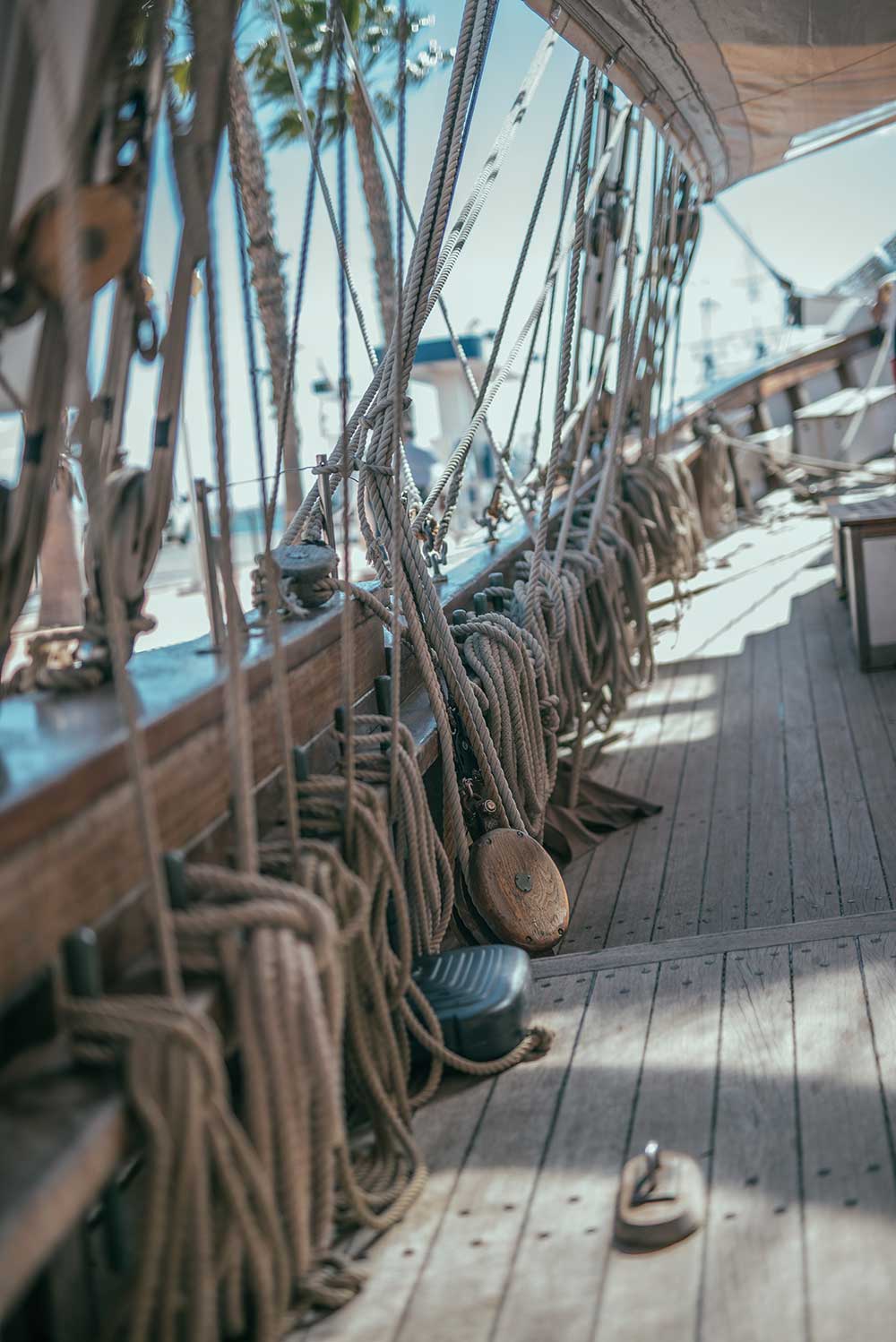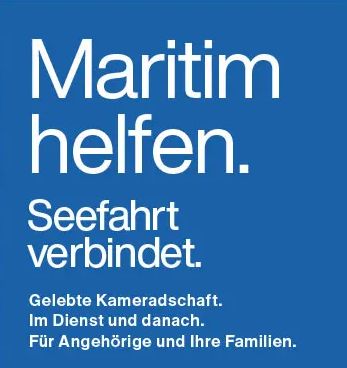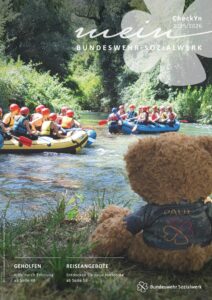
Photo: Unsplash, Alberto Gasco
The Marine-Offizier-Hilfe e.V. (MOH)
Keel laying - How the MOH - Marine-Offizier-Hilfe came into being.
On 12 November 1918 in Wilhelmshaven, active and former naval officers founded the "Naval Officer Assistance". The aim was to provide comradely self-help after the end of the First World War. From 1922, the name "Marine-Offizier-Verband" (Naval Officers' Association) was used, and in 1939 the name was changed back to "Naval Officer Assistance". The association was dissolved at the end of the Second World War and re-established in 1952. Once again, comradely self-help was at the centre of the association's work. With the founding of the German Armed Forces, close ties with the navy were added.
From 1966 onwards, the name and tasks were adapted to the new circumstances:
- The previous "Naval Officer Assistance" received its current name "Naval Officers' Association"
- Comradeship and study support were organised in a second association under the traditional name of "Naval Officer Assistance" bundled
70 years of MOH in the Federal Republic of Germany
70 years of naval officer assistance (MOH) in the Federal Republic of Germany
A historical summary
On 12 October 1918, an association of naval officers, the Marine-Offizier-Hilfe, was founded in Wilhelmshaven (MOH)which has endured as a community of values even after more than a century. As an emergency community, members of the naval officer corps, "no matter whether ensign, application clerk, captain or officer" contribute to "getting lots of jobs for others, exploiting relationships" or to be a benefactor of the comrades in some other way. The association had set itself the goal according to its statutes: "to provide outgoing officers of the Navy with a position in life that corresponds to their knowledge and abilities, to advise them in their choice of career and to support them in their new professions with advice and assistance."
The MOH was deliberately founded as a professional organisation for self-help. As can be seen from the first years of the association's magazine, today's "marineforum", the officer class was by no means seen as a social class with special privileges. Rather, the men who joined together here saw themselves as a group of soldiers who sought to preserve their individuality. Socialised by their service in the navy, they wanted to find ways to continue their lives as members of the military even after the external conditions of life had ceased to exist. Solidarity in comradeship, a virtue of military service that is still valid today and which had proven itself many times over for the naval officers of the time in the war that had just ended, was now to be revitalised and actualised through a diverse willingness to help each other by helping themselves to gain a foothold in civilian life and to create the material basis for their own livelihood by building up livelihoods, which was referred to as "positions" at the time. The MOH was designed as a community of values right from its foundation and was therefore more than just a charitable organisation. As can easily be seen from the MOH's periodical, even in the first years of its existence it became a spiritual home for many of its members, where they could meet people with the same fate and find understanding. This was also one of the decisive reasons why the MOH was renamed the Naval Officers' Association (MOV) on 17 November 1921. The meeting report stated: "The name "Naval Officer Assistance" must be abandoned, as it is not suitable for the association's activities in economic life. The name "Marine-Offizier-Verband" has been chosen as a replacement because it is so short and because it expresses well that the association wants to unite all naval officers and their only partially divergent paths. The purpose and objectives have not been changed for reasons that have already been mentioned."
The direct job placement service operated by the Naval Officers' Association was of outstanding importance. Further assistance for members consisted of adverts in the newsletter, in which reference was made to companies or businesses with which former naval officers worked. The list of addresses published by the MOV was of particular importance. A good example of this is the still leading tea mail order company Schrader in Bremen, which was founded in 1921 by retired Captain Paul Schrader. Schrader successfully built up a customer base with his adverts in the MOV-Nachrichten.
In order to maintain its independence and avoid being brought into line by the National Socialists, the association was reorganised in 1938 as the MOH The company's basis of existence was initially withdrawn for good after the end of the war in 1945.
When the Bundestag passed the resolution on 8 February 1952 to make a German defence contribution in principle, there were also limited opportunities for an official association of former soldiers. Thus, 70 years ago on 16 March 1952 in Krefeld, the Marine-Offizier-Hilfe e.V. (MOH) was newly founded. The renewed MOH pursued the same objectives as its predecessor organisation, which was founded in 1918. The aim was to help former naval officers reintegrate into civilian working life and to provide advice and assistance to comrades in need or still in captivity, as well as their families.
As an aid measure, after the founding of the MOH 1952, building on the experience of the old MOHThe organisation has again set up a job placement service and has also called for donations of money and goods. The MOH provided help in many different ways.
In 1957 a special account "Comrades in Need" was set up, which was later reorganised from the MOH was spun off in order to continue to exist as an independent charitable organisation recognised as a non-profit organisation for tax reasons. In 1962, the "Marine-Offizier-Sozialfond" was founded as a second organisation. The first association, the MOHwas a corporate member of the second club.
From 1956 onwards, the establishment of the German Navy meant that the MOH increasingly took on additional tasks that went beyond the focus on direct aid measures. This again raised the question of renaming the organisation, as in 1921. MOH. After thorough discussions, the company was renamed in 1966. MOH in "Marine-Offizier-Vereinigung"(MOV). The second association "Marine-Offizier-Hilfe-Sozial-Fond" also took on the name "Naval Officer Assistance".
At the end of the First World War and even 70 years ago, when the MOH In the past, comrade assistance consisted of helping officers who had become "unemployed" to enter the civilian world. Today, it includes support measures for single and elderly comrades, relatives of comrades or assistance in drawing up debt repayment plans for comrades who have fallen into the debt trap. Despite the generally good care situation of our members, there are always serious emergency situations, such as accidents, in which quick and unbureaucratic help is needed. For some time now, not only naval officers, but all current and former members of all German navies and their immediate family members in need of assistance have been helped.
MOH/MOV have identified with the Federal Republic of Germany and its liberal-democratic legal system and the fundamental values of our state from the very beginning of its reestablishment. This soon led to an obligation to support the defence mission of the active navy in politics and society. This emphasised the genuine interlocking of the maritime and security interests of our country, whose prosperity depends to a decisive degree on safe and functioning maritime connections. This meant that awareness and information had to be communicated not only to active naval officers, but also to the general public. To achieve these objectives, the "German Maritime Institute (DMI)" was founded in 1974 as a non-profit organisation, which has been known as the "German Maritime Institute (DMI)" since 2011. MOH financially supported. This means that the MOH After its foundation as a mutual aid organisation, it became the material basis, so to speak, for the association of naval officers in the MOV. However, it also became the material backbone for the DMI's promotion of our country's legitimate maritime security interests.
The MOH is still a non-profit organisation today, financed by donations, bequests and legacies, and thus continues to pursue the goals it set out to achieve when it was founded as a "Benefactor of the comrades" in the 21st century in an unbureaucratic and targeted manner.
Dr Heinrich Walle, Dirk Siebenmarck
Maritime help.
What we stand for

Membership and finances
Membership
Natural persons and legal entities can become members. Natural persons must also be members of the "Marine-Offizier-Vereinigung e.V." be.
Finances
Donations, bequests and voluntary contributions form the financial basis for our help.
Responsibility
The honorary Board of Directors consists of the Chairperson, his/her deputy and up to five assessors. All non-delegated tasks are decided by the Executive Board. A managing director is responsible for day-to-day business.

Photo: Gorch Fock in Lisbon, photographer Carlos Porfirio
The new 2025/2026 holiday catalogue from the Bundeswehr Social Welfare Organisation

As always, there are plenty of inexpensive and interesting offers for young and old.
The catalogue can be obtained from the MOV/MOH/DMI office at [email protected] can be ordered or here can be downloaded.
MOH office
Marine-Offizier-Hilfe e.V.
Jade avenue 102
26382 Wilhelmshaven
Telephone: +49 (0) 4421-50047-15
Fax: +49 (0) 4421-50047-29
e-mail: [email protected]
Bank details:
Volksbank Wilhelmshaven (new)
IBAN: DE62 2829 0063 1100 4057 92
BIC: GENODEF1WHV
Postbank Ndl. Deutsche Bank
IBAN: DE85 3701 0050 0219 2635 00
BIC: PBNKDEFF
Responsible persons
Responsible for content according to §10 Abs.3 MDStV:
Managing director and archivist
Dirk Siebenmarck
Former frigate captain
Contact person:
Thorsten Kähler
Rear Admiral (ret.) and
Chairman MOH/MOV
Liability for links:
No liability is assumed for the contents of the links contained in the link list (exclusion of liability in accordance with the judgement of the Hamburg Regional Court of 12 May 1998).



